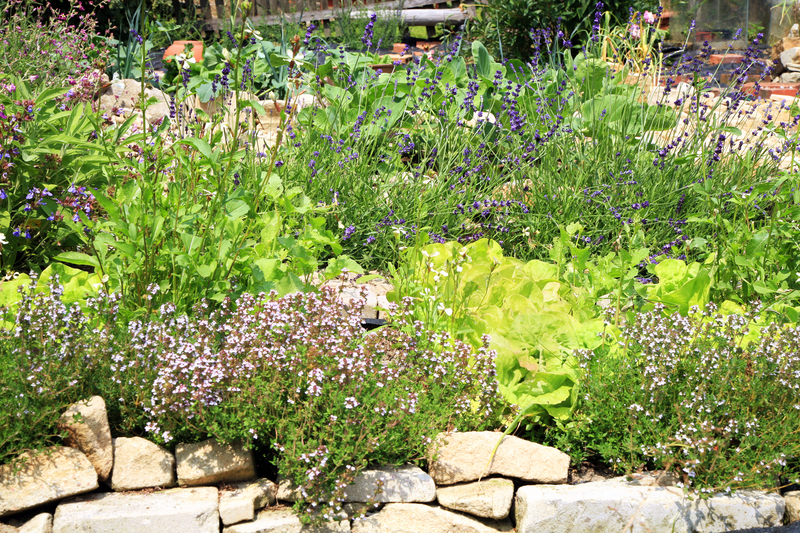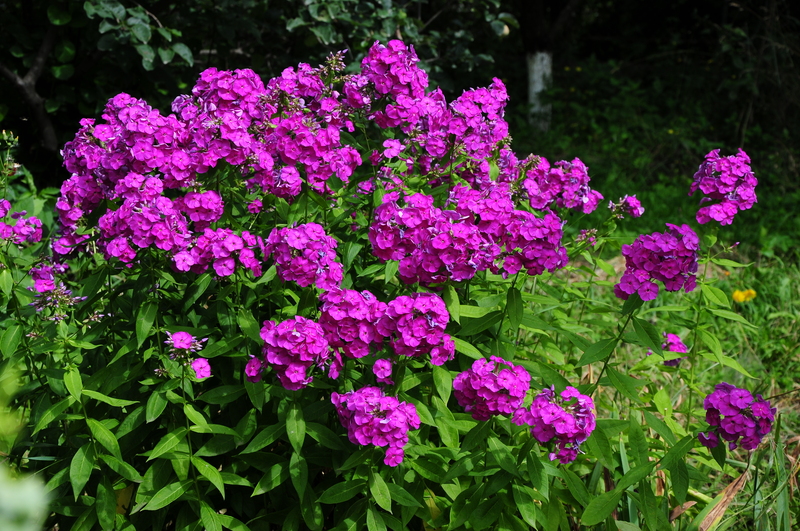Gardening: Small Steps Towards Big Climate Solutions
Posted on 17/06/2025
Can a simple act, like planting a seed, truly help in the fight against climate change? Discover how everyday gardening can foster a flourishing planet, promote sustainability, and inspire eco-friendly living.
Why is Gardening a Climate Solution?
Gardening is more than just a hobby or a way to beautify your surroundings; it's a powerful tool that can contribute to solving some of the world's most pressing environmental challenges. By integrating climate-friendly gardening techniques into your daily routine, you can play a significant part in reducing your carbon footprint. From absorbing greenhouse gases to supporting biodiversity, the benefits of gardening extend far beyond rows of vibrant blooms and fresh vegetables.
The Connection Between Gardening and Climate Change
Climate change remains a global challenge, largely driven by excessive amounts of carbon dioxide in the atmosphere. Fortunately, plants act as natural carbon sinks, absorbing CO? during photosynthesis. Large-scale agriculture, while vital, often comes with its own set of environmental issues -- soil degradation, synthetic fertilizers, and pesticide use. However, when individuals embrace sustainable gardening practices at home, it contributes to a larger, positive environmental impact.
- Absorbs CO?: Plants and trees capture and store carbon, lessening greenhouse effect.
- Improves Soil Health: Encourages organic matter and microorganisms which support carbon sequestration.
- Supports Wildlife: Offers habitats for pollinators and other beneficial organisms.
- Reduces Food Miles: Homegrown produce cuts down on fossil fuel consumption for transportation.
- Promotes Mindful Consumption: Teaches sustainable living and conscious resource use.

Small Gardening Steps That Matter
No garden is too small to make a difference. Even a balcony with a cluster of potted herbs can help. Here's how the smallest of gardening activities can contribute to climate resilience:
Grow Your Own Food
When you cultivate even a fraction of your own fruits and vegetables, you reduce dependency on industrial agriculture, which often involves:
- Long-distance food transport emissions
- Excessive packaging waste
- Chemical fertilizers and pesticides
By favoring homegrown food, you limit your exposure to these issues and enjoy fresh, nutritious harvests. Urban gardening, community plots, and container planting are all excellent steps towards sustainable food sources.
Compost Kitchen and Garden Waste
Composting is among the top climate solutions in everyday gardening. Instead of sending organic waste to landfills where it emits methane--a potent greenhouse gas--compost it at home. Compost improves soil fertility and structure, locking carbon in the ground rather than the air.
- Bread, fruit peels, vegetable stalks
- Grass clippings and leaves
- Spent coffee grounds and eggshells
Turn these kitchen scraps into a rich soil amendment and turbocharge the climate benefits of your garden.
Choose Native and Pollinator-Friendly Plants
Native plants are adapted to local climates and require less water, fertilizer, and maintenance. They offer shelter and nourishment to local wildlife, particularly pollinators like bees and butterflies, whose populations are crucial for robust ecosystems and food security. Supporting pollinators helps maintain biodiversity and keeps local food systems resilient in the face of changing climates.
Opt for Water-Smart Gardening
Water is an increasingly precious resource. Gardening methods that conserve water can make your personal plot more environmentally friendly:
- Install rain barrels to collect water
- Switch to drip irrigation or soaker hoses
- Mulch garden beds to retain moisture and reduce evaporation
- Group plants with similar water needs
- Explore drought-tolerant species
Reduce and Avoid Chemicals
Conventional chemical fertilizers and pesticides contribute to water pollution, harm beneficial insects, and release greenhouse gases through their production and use. Switching to organic gardening practices helps:
- Preserve beneficial soil microbes
- Encourage natural pest predators
- Reduce energy requirements tied to synthetic input production
How Gardens Capture and Store Carbon
Soil is one of Earth's largest carbon pools. Healthy, well-managed soils, nourished through gardening and composting, act as long-term carbon stores. The more organic matter added--such as through leaf mold, compost, and green manure--the more carbon is locked away for years.
Trees and perennials are particularly impactful for carbon sequestration, as their size and deep roots increase soil carbon storage. Consider integrating berry bushes, herbs, and even dwarf fruit trees into your garden to maximize climate benefits.
The Role of No-Dig and Regenerative Gardening
No-dig gardening is gaining popularity for its climate impact. By minimizing soil disturbance, you:
- Retain more carbon in the soil
- Boost beneficial bacterial and fungal networks
- Enhance moisture retention
- Reduce weed growth naturally
Layering compost, mulch, and organic matter on the soil surface mimics natural forest floors, leading to more resilient gardens and greater carbon drawdown.
Gardening for Biodiversity and Resilient Ecosystems
Biodiversity isn't only about the variety of plant species. A diverse garden fosters resilient, adaptable ecosystems that can better withstand climate disturbances. The greater the diversity, the more climate-resistant your garden and local area become.
- Mix flowering plants with vegetables and herbs
- Leave some wild corners for native insects and birds
- Provide water sources such as birdbaths or small ponds
- Avoid monocultures; plant a range of crops close together
These small steps help restore natural balances, supply habitats, and support both urban and suburban wildlife corridors, tackling climate challenges one garden at a time.
Community Gardening: Collective Climate Action
Community gardening magnifies the climate benefits of individual actions. By transforming vacant lots and unused green spaces into productive gardens, neighborhoods gain:
- Shared access to local, organic food
- Reduced heat island effects in cities
- Opportunities for recycling organic waste
- Community education on climate-smart gardening
- Support networks for pollinator and native plant initiatives
Gardening together fosters a sense of stewardship for the environment, encouraging others to join the movement and adopt planet-friendly practices in their own homes.
Reducing the Urban Heat Island Effect
Cities heat up faster than natural landscapes, a phenomenon known as the urban heat island effect. Urban gardens cool neighborhoods through shading, evapotranspiration, and improved air quality. Rooftop gardens are particularly effective in combating rising urban temperatures and enhancing citywide climate resilience.
Eco-Gardening Innovations for a Climate-Positive Future
Innovative techniques and emerging technologies now make it easier than ever to garden with the climate in mind. Some approaches include:
- Vertical gardens and green walls -- maximize greenery, especially in urban spaces
- Edible landscapes -- integrate food-producing plants into ornamental designs
- Permaculture principles -- design self-sustaining gardens that mimic natural ecosystems
- Smart irrigation and moisture sensors -- save water and reduce waste
- Soil health monitoring kits -- empower gardeners to track and improve carbon sequestration
Sustainable Tools and Resources
Choose sustainably built tools, compostable seed trays, and peat-free potting mixes. Consider exchanging seeds, starts, and management tips within local networks to close the resource loop and minimize carbon footprints.

Every Gardener Counts: How You Can Start Today
Ready to do your part? You don't need acres of land or a big budget. Here's how anyone can take part in gardening for climate health:
- Start small: Plant container herbs or a window box of pollinator flowers.
- Compost food scraps: Use a countertop bin or join a local composting collective.
- Choose native plants: Ask your local nursery about plants best suited for your area.
- Reduce, reuse, repurpose: Save seeds, recycle pots, and find new uses for household waste in the garden.
- Share your knowledge: Encourage friends, family, and neighbors to adopt sustainable gardening habits.
- Support local initiatives: Join a community garden, attend eco-gardening workshops, or volunteer for nature restoration projects.
Measure Your Impact
Gardening's climate impact may seem small at first, but consider these measurable benefits:
- Every square meter of green space absorbs atmospheric carbon and produces oxygen.
- Composting household waste diverts kilograms of material from the landfill, preventing methane generation.
- Native plantings increase pollinator presence, leading to greater food security and biodiversity.
Gardening: From Small Steps to Big Climate Solutions
Every action counts--especially in the garden. Small, climate-conscious changes, when multiplied across communities and cities, can help slow the progress of climate change, restore soil health, and build more resilient local food systems. Gardening empowers individuals, families, and neighborhoods to embrace sustainability, learn new skills, and reconnect with nature.
Whether you're nurturing a windowsill basil plant, joining a community orchard, or transforming your backyard into a haven for wildlife, your green choices make a world of difference for the climate. Plant the seeds today for a greener, cooler, and more sustainable tomorrow -- one garden at a time.

